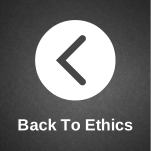Ohio’s Revolving Door Law
For twelve months following a departure from public service, all public officials and employees are prohibited from representing any person or entity in regards to a matter in which they personally participated as a public official or employee. This general prohibition is known as Ohio’s Revolving Door Law and is codified in R.C. 102.03(A)(1).
This general prohibition does not apply to legislative matters (i.e. proposals, considerations, or enactments of: statutes, rules, ordinances, resolutions, and charter or constitutional amendments) but does apply to all other matters. Therefore, for one year following public service, former members and legislative employees are prohibited from representing any person or entity in regards to a non-legislative matter (e.g. a contracting decision) in which he or she personally participated as a public official or employee.
Until 2010, Ohio’s legislative specific Revolving Door Law—R.C. 102.03(A)(4)—also prohibited general assembly members and legislative employees from lobbying relative to any statutes, resolutions, or constitutional amendments for one year following their departure from the legislature. In Brinkman v. Budish, 692 F. Supp. 2d 855, 862 (S.D. Ohio 2010), the United States District Court (Southern District of Ohio) ruled this prohibition to be an unconstitutional violation of the First Amendment. Although still codified, both JLEC and law enforcement are enjoined from enforcing R.C. 102.03(A(4). Members and employees are no longer prohibited from registering as a legislative agent immediately upon separation from public service.
The information above is provided for general informational purposes and is not to be interpreted as legal advice.
